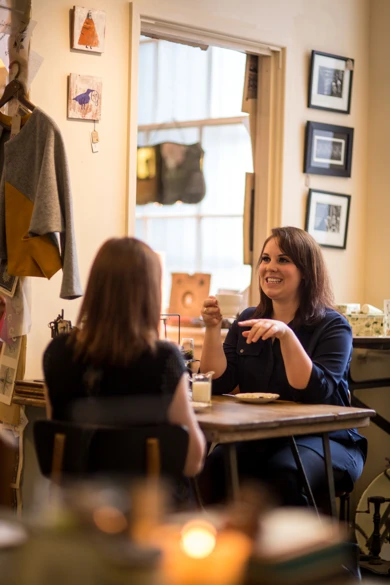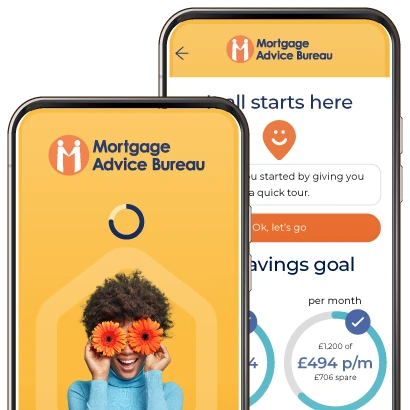There are a variety of things you will need to do when it comes to preparing for, and getting a mortgage deal. Fortunately, we’re on hand to guide you through the process and ensure that you don’t get lost in the finer details and jargon, especially if you’re a first time buyer!
Organise your budget
Before you start the mortgage application process, it's important to have a clear understanding of your financial situation and budget. Take a comprehensive look at your income, expenses, and existing debt. Use our online affordability calculator to get an estimate of how much you can afford. This step will help you determine your budget and identify a comfortable price range and deposit amount for your new home.

Ensure your credit score is up to scratch
Your credit score plays a significant role in your ability to secure a mortgage and the terms you'll receive. Request a free credit report from a provider such as Experian, Equifax, or TransUnion and review it for any errors or discrepancies. A higher credit score will generally lead to better mortgage offers, so if your score needs improvement, work on reducing debt, and making timely bill payments.
Figure out the type of mortgage that’s right for you
There are a variety of different kinds of mortgages available in the market, so it’s important to figure out which kind suits your circumstances best.
Interest-only
Each month, you simply pay the interest, not the principal. This implies that your payments will be smaller, but the whole amount borrowed will remain outstanding at the conclusion of the mortgage period. This type of mortgage is usually chosen by landlords as you will have to repay the entire amount owed as a lump sum at the end of your mortgage term.
Tracker
A tracker mortgage is inherently tied to the fluctuations of the Bank of England's bank rate (base rate), which means it will consistently adjust itself either upwards or downwards, in alignment with these changes. This means your monthly repayments may fluctuate.
Fixed rate
You will pay the same amount every month for a defined length of time (this might be two, five, or even ten-plus years). Many consumers appreciate the peace of mind that comes with knowing what their mortgage payments will be each month.
Standard variable rate (SVR)
This is the default rate that you transition to once your fixed or tracker rate period, during which your interest rates are predetermined, has come to an end. This rate may also fluctuate.
Get in touch with a mortgage adviser
Once you’ve determined what kind of mortgage deal you’re after, or if you’re struggling to figure it out, speak to an expert mortgage adviser for help with getting a mortgage. Consulting with a professional can help eliminate multiple steps of the process that you would normally have to figure out yourself - saving you plenty of time!
Your mortgage adviser will work closely with you to understand your financial goals and constraints. They can help you determine the appropriate budget, select the right mortgage product, and tailor your application to increase the chances of approval.
Negotiating with lenders is a crucial part of securing a mortgage deal. Mortgage advisers can skillfully negotiate on your behalf to obtain better terms for your circumstances. A mortgage adviser can provide you with a curated list of mortgage offers from various lenders, making it easier for you to compare and select the most suitable option.
Closing the deal
After your application is approved, you'll proceed to the closing stage. This is where you sign all the necessary paperwork and pay any remaining closing costs. Carefully review all documents to ensure accuracy and that the terms align with what you agreed to during the pre-approval process. A solicitor will help you with this at this stage of the process.
Getting your mortgage
Getting a mortgage may seem like a complex process, but with the right knowledge and preparation, you can navigate it successfully. By understanding your budget, improving your credit, researching mortgage types, and carefully comparing lenders and loan offers, you can set yourself up for a smooth and successful journey to homeownership.
Working with a mortgage adviser can further simplify the process, helping you achieve your dream of owning a home.

Important information
Your home may be repossessed if you do not keep up repayments on your mortgage.
There may be a fee for mortgage advice. The actual amount you pay will depend on your circumstances. The fee is up to 1% but a typical fee is 0.3% of the amount borrowed.
Related Articles
Common fears and concerns of first time buyers
Don't let first time buyer fear hold you back from owning a home. Read our guide to common house buying fears to learn how to best to conquer them and ease your nerves.
How to get mortgage ready
Getting mortgage ready means making sure you're as prepared as you can be when the time comes to submit your paperwork. Here's what you need to know.
A helpful guide for first time buyers
First time buyers complete guide to buying your first home.
No posts currently available







